May 2, 2016 •
Washington AG to Clarify Campaign Disclosure Law
The Washington Attorney General’s Office has been asked to give an informal opinion as to whether initiative campaigns need to disclose top five donors on signature gathering petitions. This request comes from Senator Pam Roach, who is taking issue with […]
 The Washington Attorney General’s Office has been asked to give an informal opinion as to whether initiative campaigns need to disclose top five donors on signature gathering petitions. This request comes from Senator Pam Roach, who is taking issue with the Public Disclosure Commission’s advice for initiative campaigns to disclose top donors on petitions.
The Washington Attorney General’s Office has been asked to give an informal opinion as to whether initiative campaigns need to disclose top five donors on signature gathering petitions. This request comes from Senator Pam Roach, who is taking issue with the Public Disclosure Commission’s advice for initiative campaigns to disclose top donors on petitions.
State law requires political committees to include their five top contributors on political ads about ballot measures that cost $1,000 or more. The issue is whether initiative petitions are advertisements and thus subject to the disclosure requirement. Because this issue arose during an election cycle, the Secretary of State’s Office will accept all valid petition signatures regardless of whether the donors are disclosed.
March 21, 2016 •
Proposed Bill Would Allow Colorado Independent Ethics Commission to Investigate Complaints
The Colorado Independent Ethics Commission is coming under harsh criticism in the wake of records released by the state auditor, with some claiming it is unethical. Often, the burden of investigating and presenting a case for an ethics violation falls […]
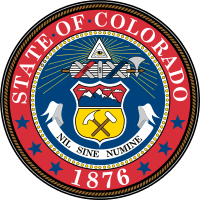 The Colorado Independent Ethics Commission is coming under harsh criticism in the wake of records released by the state auditor, with some claiming it is unethical. Often, the burden of investigating and presenting a case for an ethics violation falls upon the person filing the complaint. As an alternative, state Rep. Beth McCann is sponsoring House Bill 1216 to enhance the ability of the commission to investigate public officials who skirt the ethics rules.
The Colorado Independent Ethics Commission is coming under harsh criticism in the wake of records released by the state auditor, with some claiming it is unethical. Often, the burden of investigating and presenting a case for an ethics violation falls upon the person filing the complaint. As an alternative, state Rep. Beth McCann is sponsoring House Bill 1216 to enhance the ability of the commission to investigate public officials who skirt the ethics rules.
One of the more specific issues addressed in HB 1216 is the role of the attorney general. Currently, the commission relies on the legal assistance of the attorney general; if the person accused of an ethics violation is an elected official, the attorney general must also provide legal assistance to the official. HB 1216 would require the panel to retain or employ independent counsel rather than rely on the attorney general.
October 5, 2015 •
Additional Charge Mounted Against Pennsylvania Attorney General
Prosecutors charged Attorney General Kathleen Kane with an additional perjury charge for lying to a grand jury about an oath of secrecy she took in 2013. Kane was charged in August with conspiracy and official oppression perjury for leaking secret […]
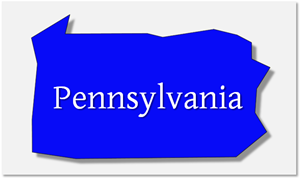 Prosecutors charged Attorney General Kathleen Kane with an additional perjury charge for lying to a grand jury about an oath of secrecy she took in 2013. Kane was charged in August with conspiracy and official oppression perjury for leaking secret grand jury materials to a Philadelphia newspaper in order to embarrass a political enemy.
Prosecutors charged Attorney General Kathleen Kane with an additional perjury charge for lying to a grand jury about an oath of secrecy she took in 2013. Kane was charged in August with conspiracy and official oppression perjury for leaking secret grand jury materials to a Philadelphia newspaper in order to embarrass a political enemy.
Last month, the state’s Supreme Court ordered the temporary suspension of Kane’s law license, possibly leading to efforts to remove her from office. Kane denies any wrongdoing and stated she will not resign.
While seeking $72,000 in fines and restitution from a former candidate for lieutenant governor for campaign finance violations, Attorney General Bill Sorrell is coming under fire for his own recent filings. A new report claims Sorrell failed to adequately report […]
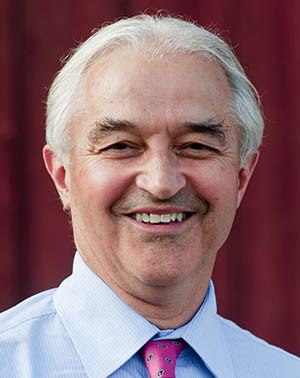 While seeking $72,000 in fines and restitution from a former candidate for lieutenant governor for campaign finance violations, Attorney General Bill Sorrell is coming under fire for his own recent filings. A new report claims Sorrell failed to adequately report thousands of dollars of reimbursements he received from his campaign.
While seeking $72,000 in fines and restitution from a former candidate for lieutenant governor for campaign finance violations, Attorney General Bill Sorrell is coming under fire for his own recent filings. A new report claims Sorrell failed to adequately report thousands of dollars of reimbursements he received from his campaign.
The newspaper Seven Days has pointed to 16 occasions in the last four years where it believes the campaign provided only a vague explanation of what Sorrell purchased and never disclosed who was paid.
Sorrell stated he has always tried to meet his disclosure obligations and he welcomes any input from the Secretary of State’s Office.
Gov. Peter Shumlin, when asked about the situation, said he does not plan to appoint an independent prosecutor to investigate.
Photo of Attorney General Bill Sorrell courtesy of the website for the Office of the Vermont Attorney General.
October 24, 2014 •
DC Election for Attorney General to Be Held Nov. 4
Washington, D.C. voters will elect their attorney general for the first time on November 4, 2014. Up until this year, the attorney general has been appointed by the mayor. In 2010, voters approved a charter amendment authorizing the first election […]
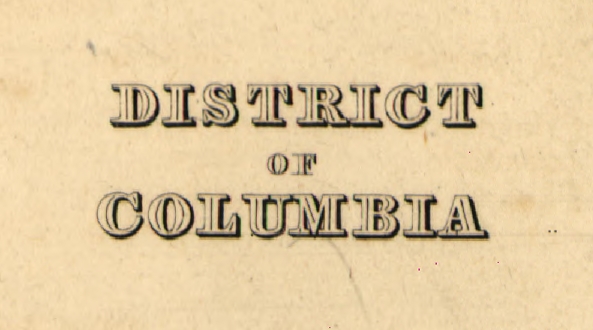 Washington, D.C. voters will elect their attorney general for the first time on November 4, 2014. Up until this year, the attorney general has been appointed by the mayor.
Washington, D.C. voters will elect their attorney general for the first time on November 4, 2014. Up until this year, the attorney general has been appointed by the mayor.
In 2010, voters approved a charter amendment authorizing the first election of the city’s attorney general and setting a primary election for April 2014. In late 2013, the council passed a law delaying the election from 2014 to 2018, fearing the city lacked the necessary preparation.
Paul Zukerberg, a candidate for attorney general, challenged the 2013 law in court. In June 2014, the Court of Appeals ruled an election must be held in 2014 unless it would not be practically possible for the D.C. Board of Elections to do so.
Following a directive by the Court of Appeals to set a date for the election, the D.C. Superior Court decided the election will be held on November 4, 2014, the same day as the mayoral election.
September 18, 2014 •
Vermont Attorney General Asked to Clarify Campaign Finance Law
The pro-life group Vermont Right to Life Committee filed a complaint with the state’s attorney general’s office against Vermont Leads and its independent expenditure PAC, Vermont Leads Political Action Committee. The complaint alleges transfers of money between the two groups […]
 The pro-life group Vermont Right to Life Committee filed a complaint with the state’s attorney general’s office against Vermont Leads and its independent expenditure PAC, Vermont Leads Political Action Committee. The complaint alleges transfers of money between the two groups violate campaign finance laws.
The pro-life group Vermont Right to Life Committee filed a complaint with the state’s attorney general’s office against Vermont Leads and its independent expenditure PAC, Vermont Leads Political Action Committee. The complaint alleges transfers of money between the two groups violate campaign finance laws.
Act 90, enacted in January, states an independent expenditure PAC cannot be closely related to a political party or political committee if they make contributions to candidates. The treasurer of Vermont Right to Life Committee, Sharon Toborg, is asking the attorney general to clarify the statute’s language.
Assistant Attorney General Eve Jacobs-Carnahan believes the distinction will depend on communication between Vermont Leads and its PAC as well as their governance structure, activities, and spending.
Republicans have chosen former Attorney General Henry McMaster as the party’s nominee for lieutenant governor. McMaster easily won the runoff against businessman Mike Campbell, the son of late Republican Gov. Carroll Campbell, despite campaign support from former Arkansas Gov. Mike […]
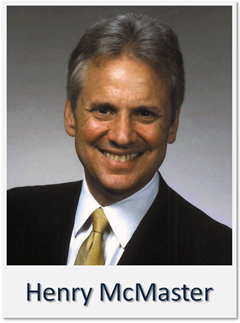 Republicans have chosen former Attorney General Henry McMaster as the party’s nominee for lieutenant governor. McMaster easily won the runoff against businessman Mike Campbell, the son of late Republican Gov. Carroll Campbell, despite campaign support from former Arkansas Gov. Mike Huckabee.
Republicans have chosen former Attorney General Henry McMaster as the party’s nominee for lieutenant governor. McMaster easily won the runoff against businessman Mike Campbell, the son of late Republican Gov. Carroll Campbell, despite campaign support from former Arkansas Gov. Mike Huckabee.
The win is also a positive for former Sen. Rick Santorum, who campaigned for McMaster in the closing days before the runoff.
McMaster will face Democrat state Rep. Bakari Sellers in the November general election.
The Vermont attorney general has issued guidance regarding the state’s contribution limits effective through the end of the year. His guidance interprets the $1,000 per election limit as meaning a candidate may accept a total of $2,000 for the 2013-2014 […]
 The Vermont attorney general has issued guidance regarding the state’s contribution limits effective through the end of the year. His guidance interprets the $1,000 per election limit as meaning a candidate may accept a total of $2,000 for the 2013-2014 election cycle, even if the candidate does not face a primary contest. Candidates who lose their primary election may also accept the full $2,000. This guidance is effective for contribution limits only through the end of the year, as Vermont’s new contribution limits effective January 1, 2015 are per two-year election cycle rather than per election.
The Vermont attorney general has issued guidance regarding the state’s contribution limits effective through the end of the year. His guidance interprets the $1,000 per election limit as meaning a candidate may accept a total of $2,000 for the 2013-2014 election cycle, even if the candidate does not face a primary contest. Candidates who lose their primary election may also accept the full $2,000. This guidance is effective for contribution limits only through the end of the year, as Vermont’s new contribution limits effective January 1, 2015 are per two-year election cycle rather than per election.
The full text of the attorney general’s guidance is here.
November 21, 2013 •
WA AG Pursues Lawsuit against Grocery Manufacturers Association after Defeat of I-522
Although Initiative 522 was ultimately defeated in an election several weeks ago, State Attorney General Bob Ferguson is moving forward with a lawsuit against the Grocery Manufacturers Association, alleging the group broke state campaign finance laws in its effort to […]
 Although Initiative 522 was ultimately defeated in an election several weeks ago, State Attorney General Bob Ferguson is moving forward with a lawsuit against the Grocery Manufacturers Association, alleging the group broke state campaign finance laws in its effort to defeat Initiative 522.
Although Initiative 522 was ultimately defeated in an election several weeks ago, State Attorney General Bob Ferguson is moving forward with a lawsuit against the Grocery Manufacturers Association, alleging the group broke state campaign finance laws in its effort to defeat Initiative 522.
Under Washington campaign finance law, an outside group like the GMA must form a political committee, register it in the state of Washington, and file disclosure forms listing the sources of its funding.
Ferguson alleges GMA failed to timely do so and as a result, robbed Washington voters of “transparency and openness in elections”.
The case will not go to trial until early next year.
October 4, 2013 •
AZ AG Agrees Separate Candidate Committees Needed for Primary and General Elections
HB 2593
 On October 2, Arizona Attorney General Thomas C. Horne joined with Secretary of State Ken Bennett by concluding the law under newly enacted House Bill 2593 requires separate candidate committees for the primary and general elections and contribution limits still apply to committee-to-committee transfers. The attorney general amended an opinion in which it had previously stated, “The best practice might be to set up two separate candidate committees (for the primary and general elections), but the statutes do not necessarily require it.”
On October 2, Arizona Attorney General Thomas C. Horne joined with Secretary of State Ken Bennett by concluding the law under newly enacted House Bill 2593 requires separate candidate committees for the primary and general elections and contribution limits still apply to committee-to-committee transfers. The attorney general amended an opinion in which it had previously stated, “The best practice might be to set up two separate candidate committees (for the primary and general elections), but the statutes do not necessarily require it.”
The secretary of state has advised that transfers between committees for election in the same year are subject to the contribution limit of $2000.
December 12, 2012 •
New York Attorney General Proposes Expanded Campaign Finance Disclosure
Proposal focuses on money spent by tax-exempt groups.
 New York Attorney General, Eric T. Schneiderman, issued a draft regulation that could lead to massive changes in the way political spending is disclosed. The proposed regulation would require any tax-exempt group that does business in the state to disclose what percentage of its total spending went to political activities.
New York Attorney General, Eric T. Schneiderman, issued a draft regulation that could lead to massive changes in the way political spending is disclosed. The proposed regulation would require any tax-exempt group that does business in the state to disclose what percentage of its total spending went to political activities.
This means that any group who spends money in New York in support or opposition of a candidate would be forced to disclose its spending. Further, once the group has spent over $10,000 for state elections, it will have to disclose each individual donor who gave $100 or more.
The proposed regulation does allow for a waiver to be granted if the group feels that disclosure of names could lead to serious threats or harassment. The proposal calls for disclosure during the six months before any Election Day in the state.
Public hearings must be heard on the proposed regulation, but the attorney general may unilaterally approve the final regulation. If approved by the attorney general, the rules could be placed into effect in time for the upcoming New York City mayoral election.
October 4, 2012 •
Big Sky Contribution Limits in Montana
Court Rules Contribution Limits Unconstitutional
 A Federal Court has ruled Montana’s contribution limits are unconstitutional under the First Amendment.
A Federal Court has ruled Montana’s contribution limits are unconstitutional under the First Amendment.
On October 3, 2012, the U.S. District Court for the District of Montana, issuing a decision in Lair v. Murry, found the contribution limits in Montana Code Annotated §13-37-216 “prevent candidates from ‘amassing the resources necessary for effective campaign advocacy.’”
The Court has enjoined the state from enforcing the provisions of the code relating to limiting political contributions.
Montana Attorney General Steve Bullock issued the following statement: “In declaring our campaign contribution limits unconstitutional, a federal judge has effectively put Montana’s elections up for auction to the highest bidder. My office will aggressively pursue all legal remedies available to overturn this decision, including filing an emergency stay before the U.S. 9th Circuit of Appeals —the court which upheld Montana’s contribution limits just a decade ago.”
PACs that demonstrate making only independent expenditures not subject to limits
 Attorney General William Sorrell has issued a statement that his office will not enforce the $2,000 contribution limit on PACs that only make independent expenditures. The statement comes after a request for clarification from Secretary of State Jim Condos regarding the federal court decision in Vermont Right to Life Committee (VRLC) v. Sorrell.
Attorney General William Sorrell has issued a statement that his office will not enforce the $2,000 contribution limit on PACs that only make independent expenditures. The statement comes after a request for clarification from Secretary of State Jim Condos regarding the federal court decision in Vermont Right to Life Committee (VRLC) v. Sorrell.
While the opinion in VRLC v. Sorrell upheld the contribution limit as applied to VRLC’s independent expenditure committee, the ruling was based on the lack of safeguards to ensure that unlimited contributions to VRLC’s independent expenditure committee did not flow into VRLC’s candidate contribution funds.
Attorney General Sorrell stressed that if investigation reveals a PAC’s activities are not conducted entirely independently of candidates, as in VRLC v. Sorrell, it will continue to be subject to the contribution limits.
Photo of Attorney General William Sorrell by Overton2002 on Wikipedia.
November 2, 2011 •
North Dakota Special Legislative Session Could Be Needed
If measure passes
 The North Dakota Attorney General issued an opinion on November 1 suggesting a special legislative session may be necessary to remedy an accidental retroactive effective date of Initiated Constitutional Measure No. 2. The measure, which would eliminate property taxes, is scheduled to appear on the June 12, 2012 primary election ballot.
The North Dakota Attorney General issued an opinion on November 1 suggesting a special legislative session may be necessary to remedy an accidental retroactive effective date of Initiated Constitutional Measure No. 2. The measure, which would eliminate property taxes, is scheduled to appear on the June 12, 2012 primary election ballot.
State Representative Dan Ruby argued that the intention was to have an effective date of January 1 following the passage of the measure, despite the clear and unambiguous effective date listed in the text of the measure: January 1, 2012.
Attorney General Wayne Stenehjem noted the possible difficulties for political subdivisions that rely on property taxes but declined to ignore the plain language of the measure. A special session could address the need for replacement revenues if the measure passes.
State and Federal Communications, Inc. provides research and consulting services for government relations professionals on lobbying laws, procurement lobbying laws, political contribution laws in the United States and Canada. Learn more by visiting stateandfed.com.


